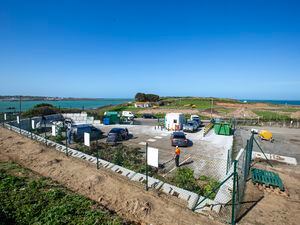Temporary work for UK employer could bring tax liability
PEOPLE who are working temporarily for UK employers from Guernsey during the pandemic have been told there could be tax implications.
The Revenue Service said that if an individual spent more than 90 days in Guernsey in any calendar year, then they were resident for tax purposes here.
They may also continue to be tax resident in the UK.
Under the UK-Guernsey double taxation arrangement, a tie-breaker clause will determine their place of residence as being where they have the closer personal and economic ties.
If that is the UK, then generally they will be taxable in Guernsey only on any Guernsey source income.
If that individual spends more than 183 days in Guernsey working for a UK employer, during any 12-month period, then that income will be taxable in Guernsey.
They will need to claim double tax relief for any Guernsey tax paid on their UK tax return.
Anyone who has spent more than 90 days in Guernsey in 2020 should register with the Revenue Service.
They face fines if they fail to notify the service by 14 July.
The information used to register for tax purposes will be used to determine if there is also a requirement to register for social security contribution purposes.
Generally, if someone is working for a UK employer in Guernsey and continues to be ordinarily resident and liable for contributions in the UK, then they are required to register for contributions only if they have been here for 52 consecutive weeks.
If someone is not employed, then they must register for contributions after they have been in Guernsey for 26 consecutive weeks.
Anyone who is in Guernsey and not working can remain for up to 90 days within a 12-month period but after this 90-day limit, an individual requires a population management permit or certificate to continue to stay.
Those working, including for a non-Guernsey-based employer, may also require a population management permit or certificate.





